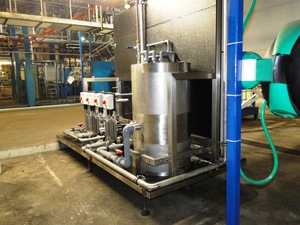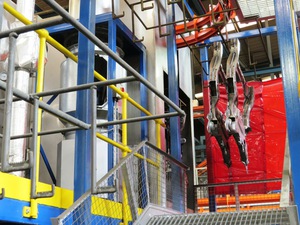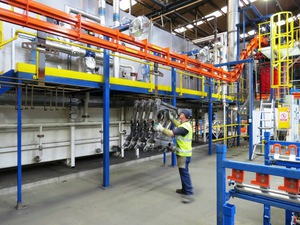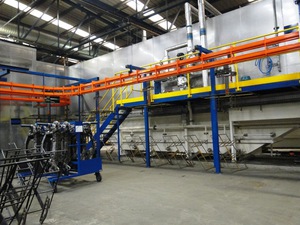

|
Edward Lowton
Editor |


|
| Home> | Production Engineering | >Component cleaning | >Addressing quality issues |
Addressing quality issues
04 August 2015
Gestamp Tallent’s Newton Aycliffe site now has a purpose-designed acid-etching process line installed by George Koch Sons Europe.
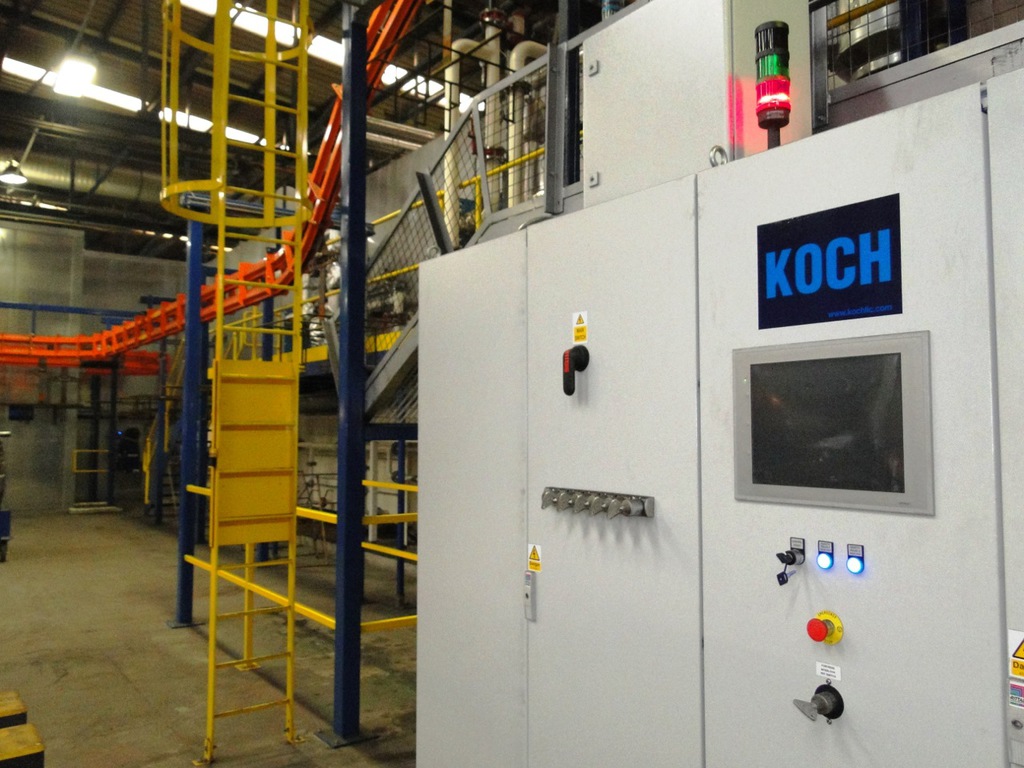
The facility has been installed in conjunction with an upgrade of the company’s effluent plant to accommodate increased throughput. It sees the first use in the UK of the new Koch Rejuvenator filtration system.
With initial testing having proven the installation performance, the line is now fully operational, accommodating a range of suspension, chassis and axle components manufactured by Volvo.
Mike Fisher, environmental manager, explains: "Ever-increasing quality standards within the automotive industry have highlighted the need to eradicate silicon-based deposits that can appear on the welds of sub-assemblies, potentially causing defects to the finished, electro-coated product." In particular, he highlights the potential presence of glass beads.
"Removal with an alkaline degreaser followed by acid-etching at 50°C using a product based on 10% sulphuric acid has proved to be particularly effective in addressing this issue,” Mike Fisher points out. The fully-automated plant processes manually-loaded parts suspended from an overhead conveyor through nine stages including spray and dip cleaners, rinse stages, the acid-etch and the application of an inhibitor ahead of product storage.
Because the new installation also means an increase in the amount of wastewater that needs to be handled at the site – with a particular requirement for treatment prior to sewer discharge – George Koch’s expertise in this area too has been utilised by Gestamp Tallent. "The original need had been addressed by a precipitation plant for more than 20 years but the new acid-etch plant pointed towards an upgrading of the facility to enhance the customer’s environmental performance while handling the larger volumes involved,” continues Mike Fisher.
He highlights the fact that George Koch was able to remove the existing plant and install the new facility within just a nine-day summer shut down period to ensure that loss of production was avoided. Significantly, the new plant uses an innovative alkali-dosing system which negates the need to mix lime powder with water in-situ, thereby reducing chemical usage and producing less sludge.
The Gestamp Tallent plant is also the first site in the UK to benefit from the new Koch Rejuvenator. The design takes degreaser solution from the wash bath and pumps it through a highly specialised auto-filtration membrane which removes both oils and emulsified oils from the solution. Cleaned degreaser is then returned to the bath without reducing the amount of surfactants and other degreasing components to ensure continuing system performance. The oil is then stored for either recovery or disposal.
"The Koch Rejuvenator has been proven in installations in other parts of the world as a highly effective means of achieving key cleaning results from a completely self-contained unit. Because it of its design, it requires minimal floor space and can be installed directly alongside a process plant such as that at Gestamp Tallent,” adds Mike Fisher.
"The George Koch installation is now fully operational and proving its capability in both processing and effluent handling terms,” comments Mick Walton, Gestamp Tallent’s senior plant operator at the Newton Aycliffe site. "In line with many leading automotive manufacturers, our customer, Volvo, is looking to develop production and processing capability in all areas where product quality can be enhanced and improved upon while meeting environmental objectives. This facility is a prime example of how this can be achieved.
"We are delighted with the input from George Koch and their involvement from design through to commissioning and testing stages,” he adds, "and are confident that this will enable us to maintain our leading position in the automotive component processing industry for many years to come.”
